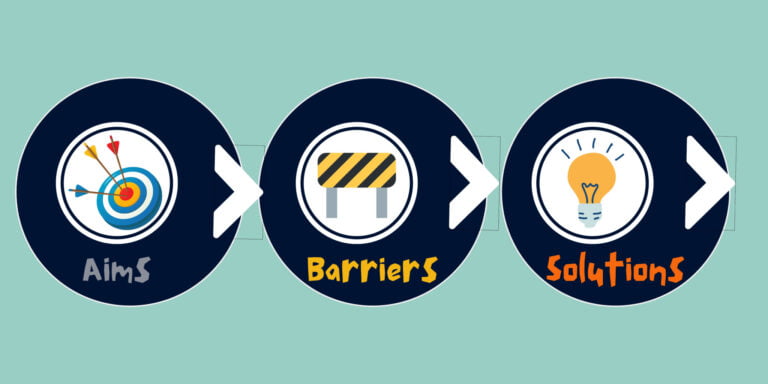What is drama-based training and why is it important?
You may have heard of drama-based training before but aren’t quite sure what it entails. Drama-based training is an immersive, facilitator-led learning practice which involves live interactive scenes with actors. It is a unique approach to the usual training services offered at workplaces across the globe. Three words to sum it up are: memorable, immersive and influential.
Augusto Boal ignited the spark for drama-based training. His forum theatre methods in the early 1970s inspired experiential learning. Experiential learning is an engaged learning process whereby delegates “learn by doing” and by reflecting on their experiences.
“Theatre is a form of knowledge; it should and can also be a means of transforming society. Theatre can help us build our future, rather than just waiting for it.” – Augusto Boal
What does it involve?
DBT involves skills practice and role-plays with pre-written scenes and bespoke scenarios. Methods are abundant in DBT. A popular one is forum theatre whereby professional actors showcase workplace scenarios to express behaviours and attitudes. Participants can stop, start and change the direction of the scenes to reach an ideal outcome. They may be asked prompts such as “What stood out to you in this scene?” and “What do you think the characters could have done differently?”. This way of learning challenges perspectives and encourages participants to think outside the box to effectively change behaviour.
Our methods at Enact Solutions:

SCENARIO
Bringing to life realistic situations and challenges for the audience to discuss, anonymously vote upon and explore with psychological safety. Our short scenes allow delegates to examine potentially challenging workplace situations, safely share perspectives, identify the impact of non-inclusive behaviours & conversations, and share best practice. We engage learners on an emotional level which fuels a desire for positive change which can be harnessed throughout the session.

Forum Theatre
Stop start forum is one of our most popular tools and uses the ‘mantle of the expert’ approach to enable learners to explore issues. Having watched an ‘anti-model’ scene in which poor practice and behaviour is exhibited, we re-play the drama. At any point a learner sees or hears the character say something they don’t like, or want to challenge, they shout ‘stop’ and the actors freeze. The learner then re-directs the drama giving instructions to the actor as to what they want them to say and how they want them to say it. This is a brilliant technique for encouraging people to see other people’s perspectives as well as share best practice in a very safe way.

Hot - Seating
Learners are encouraged to talk to a character, to ask them questions to ascertain more information. As a form of empathetic learning, it enables learners to understand more deeply how a situation or behaviour is impacting on an individual. Hot Seating is also a wonderful tool for practicing skills such as questioning and active listening techniques and sharing advice and information.

Thought Tracking
Thought tracking explores the genuine feelings a character might hold in their heads. The type of things we sometimes think but can’t or don’t necessarily share. It is a technique used to gain greater insight into a situation or as a stimulus for discussing more challenging concepts.

Invisible Theatre
The audience is unaware that actors are in the room! They experience a seemingly real event such as an unsafe piece of behaviour. The facilitator can then reveal that the happening has been staged and explore & process people’s reactions. We design invisible theatre carefully so that the moment brings to life a theme of the conference / event whilst allowing delegates not to feel tricked or exposed.

Real Play
Real play is where an actor is in role as a fictional, but realistic character, while the delegate is not in role; they play themselves. Working in small groups to enable trust and a safe, constructive working environment, delegates split into teams. Each team then works with a character to hone skills covered in the session. This an effective technique for skills practice around crucial conversations.
At Enact, we offer a range of learning and development products. Our workshops cover dignity and respect, belonging, bias, sexual harassment, DEI, inclusive recruitment and more.
Find our product page here.
The process:

DISCOVERY
Lead by inquisition and compassion we begin by asking questions and listening carefully until you feel we truly understand your organisation and it’s leaning requirements.

Development
Working side by side with you and subject matter experts, our creative team develop custom scripts and delivery methods that are sure to feel realistic, powerful & effective.

Delivery

Debrief
We’re dedicated to following up every delivery with clear measurement showing the early impact of the performance and long-term changes in behaviour.
Why use DBT and why is it important?

It's fun!
It’s a fresh and fun way of learning. As you can see from the methods above, we make the workshops as interactive and engaging as possible. This ensures that the participants are just as involved in the sessions as the actors. Although they're observing the acting, they can get stuck into discussions and partake in forum theatre methods to change the course of the scenes. Say goodbye to sitting and taking notes for hours during your training - learning just got fun!

It's tailorable to organisations
“When training is bespoke to the individual and organisation it reflects their environment and makes the scenario observed instantly relatable” - HR Zone
It isn’t a copy-and-paste type of learning. Drama-based training can be tailored to suit the needs of an organisation. Delegates may be able to see themselves in the scenes and relate to them in a way which makes them realise they aren’t alone in their experiences. It’s also adaptable as the sessions can be conducted online or in-person.
Here’s a glimpse of our bitesize livestream learning

Connects teams in a new way
Research indicates an 86% increase in learner engagement when people work together and 91% of employees who learn together are more successful. DBT provides opportunities for staff to get to know one another, collaborate on group tasks and connect outside their typical workspace.

Long lasting impact
DBT training focuses on action planning and long-term solutions. At Enact, we use simple engagement tactics such as polling to measure impact throughout the sessions. It is useful to see the differences between how participants felt at the start of the training compared to the end. We also gather feedback at the end of the session. We ask, “Which practical actions will you take from today's session?” to see what delegates have learnt and which tools they will be using in their working life. We also give clients the option to have a survey after the workshop to measure the impact of the session/s and see how people are using the learning to make changes in their departments.

Improves motivation, confidence and inspires change
Providing a safe space is key to encouraging delegates to step outside their comfort zones, talk openly and honestly in discussions and get involved in tasks. From our feedback, we have found that attendees come out of the sessions feeling more confident and motivated to make changes in areas such as challenging behaviours or having difficult conversations. DBT gives them the tools and skillset to make a positive impact in their place of work.

Powerful moments of learning
We are always happy to see those “lightbulb moments” in sessions where delegates start to see the topics and workplace situations in a new light. They learn to look beyond their own bias and understand different points of view. Delegates are taken on a journey of self-reflection throughout the training sessions and come out with a deeper inner awareness.

It's adaptable
The beauty of drama-based training is that it can be conducted online or in person. Livestream sessions use a bunch of multimedia tools and you still get the experience of live
The blend of multimedia tools and live-action scenarios encourages inquisitiveness, curiosity, teamwork, understanding and positive development. DBT acknowledges that change can start simply by bringing awareness to our behaviours and actions. We hope this has given some insight into the wonders of drama-based training. If you’d like to find out more check out our website and get in touch.
Zara Huxley



